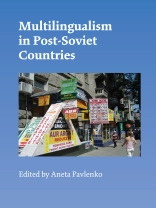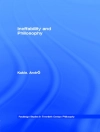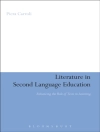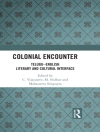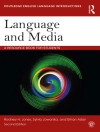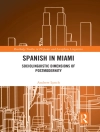The dissolution of the USSR has created conditions for a unique sociolinguistic experiment, in which fourteen countries, previously united by the same language and political system, engaged in a nation-building process, creating new linguistic regimes. Two decades later, how did these countries fare in their struggle to initiate a shift from Russian to the titular languages? Which ones succeeded and which ones restored Russian as an official language? How did they go about articulating the rights of linguistic minorities? Did Russian give way to the new lingua franca, English? This collection offers answers to these and many other questions through detailed analyses of language and education policies and practices in post-Soviet countries.
Jadual kandungan
Preface – Aneta Pavlenko
Language Management and Language Problems in Belarus: Education and Beyond – Markus Giger and Marián Sloboda
A Tense and Shifting Balance: Bilingualism and Education in Ukraine – Laada Bilaniuk and Svitlana Melnyk
Uneasy Compromise: Language and Education in Moldova – Matthew H. Ciscel
Language and Education Orientations in Lithuania: A Cross-Baltic Perspective Post- EU Accession – Tatjana Bulajeva and Gabrielle Hogan-Brun
Estonianization Efforts Post-independence – Mart Rannut
Language Policies of Kazakhization and their Influence on Language Attitudes and Use – Juldyz Smagulova
Multilingualism, Russian Language and Education in Kyrgyzstan – Abdykadyr Orusbaev, Arto Mustajoki & Ekaterina Protassova
Language and Education Policies in Tajikistan – Mehrinisso Nagzibekova
Mengenai Pengarang
Aneta Pavlenko is Research Professor of Applied Linguistics at the University of Oslo. Her research examines the relationship between multilingualism, cognition, and emotions. She has testified in court as an expert in forensic linguistics, lectured widely in North America, Europe and Asia, and authored more than a hundred articles and ten books, the most recent of which is The bilingual mind and what it tells us about language and thought (Cambridge University Press, 2014). She is former President of the American Association for Applied Linguistics and winner of the 2006 BAAL Book of the Year award and the 2009 TESOL Award for Distinguished Research.
